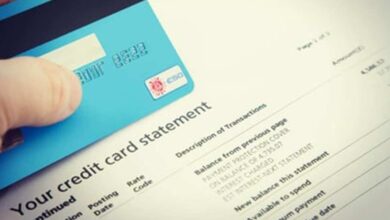
Driving Under the Influence (DUI) convictions can have far-reaching impacts on one’s life, and your insurance rates are no exception. A DUI not only tarnishes your record but also signals to insurance companies that you may be a higher-risk driver. In this blog post, we will explore how a DUI conviction influences your insurance rates and what you can expect if you find yourself in this predicament.
Why Do Insurance Rates Increase?
Insurance companies use a variety of factors to determine rates, and your driving record is a significant one. A DUI conviction essentially indicates that you are more likely to be involved in accidents or other risky behavior. As a result, the insurer may increase your rates to balance the risk they’re taking on. In some cases, they might even cancel your policy altogether.
If you are navigating the aftermath of a DUI in Tempe, seeking the advice of a Tempe DUI lawyer can be beneficial. Legal guidance can provide insights into managing the legal consequences and potentially help in mitigating some penalties.
How Much Will Rates Go Up?
The specific increase in your insurance rates can depend on various factors including your age, the state you live in, and the circumstances of your DUI. According to research, on average, you can expect your premium to increase by 50% to 100%. However, these figures can vary widely. For example, younger drivers may see a higher hike in rates because they are already considered high-risk compared to older, more experienced drivers.
The Immediate Consequences
Right after a DUI conviction, two things are likely to happen: fines and an increase in your insurance rates. Fines are usually state-imposed, but your insurer will also take prompt action. The sudden surge in your premium can be shocking, especially if you’re used to paying a certain amount. Insurers may label you as a ‘high-risk’ driver, which automatically places you in a different category.
Long-Term Effects
A DUI conviction isn’t just a one-time hit on your insurance rates; it can have long-term effects. Your conviction will stay on your driving record for several years, usually anywhere from 3 to 10 years, depending on your state’s laws. During this period, your insurance rates are likely to remain elevated. Additionally, any subsequent infractions can lead to even more drastic increases, making it even harder to find affordable insurance.
SR-22 Requirement
After a DUI conviction, most states will require you to file an SR-22 form, which is a certificate of financial responsibility. This is to prove that you carry the minimum required auto insurance. Obtaining an SR-22 can be an additional cost on your insurance policy, as it usually involves higher premiums. Moreover, an SR-22 requirement can last for several years depending on state laws.
Mitigating the Impact
While the consequences of a DUI are severe, there are strategies to help mitigate its impact on your insurance rates over time. As a Claims Assessor, understanding how insurers view DUI offenses is important. Some insurance companies offer discounts for completing DUI education programs or for maintaining a record of safe driving over a while.
Regularly reviewing your driving record and ensuring it remains error-free can also contribute to lowering your premiums in the long run. However, it’s important to note that while these measures won’t erase the DUI from your history, they can help gradually reduce the financial impact on your insurance costs.
Alternative Insurance Options
If finding affordable insurance becomes a challenge, you may want to explore alternative options like non-standard insurance providers who specialize in covering high-risk drivers. While these policies may still be more expensive than standard rates, they could offer a more manageable solution for those grappling with the fallout of a DUI conviction. Shopping around and comparing quotes from multiple providers can also help you find the best possible rate under the circumstances.
Legal Assistance and Financial Counseling
Another avenue worth exploring is seeking legal assistance and financial counseling. Some attorneys specialize in DUI cases and can help you understand the legal ramifications and possibly mitigate some of the penalties. Additionally, financial counselors can provide advice on budgeting and managing the increased insurance costs, helping you navigate this financially stressful period more effectively.
Preventive Measures for the Future
Taking preventive measures to avoid any future DUI incidents is crucial. This could mean investing in technologies like ignition interlock devices, which require a breathalyzer test before the vehicle can be started, or participating in regular alcohol education and counseling sessions. By demonstrating a commitment to responsible behavior, you may eventually lower your risk profile, making you a more attractive candidate for lower insurance rates over time.
Conclusion
A DUI conviction brings with it numerous challenges, and elevated insurance rates are a significant part of that. Understanding the long-term ramifications and taking steps to mitigate the impact can go a long way in managing the financial burden. While a DUI is a serious offense, staying informed about its effects on your insurance can better prepare you to handle the road ahead.







